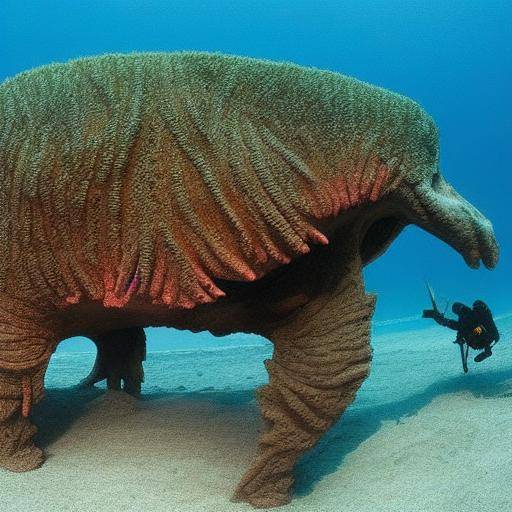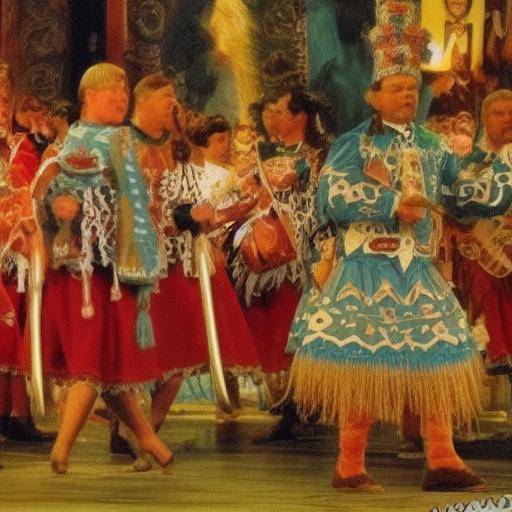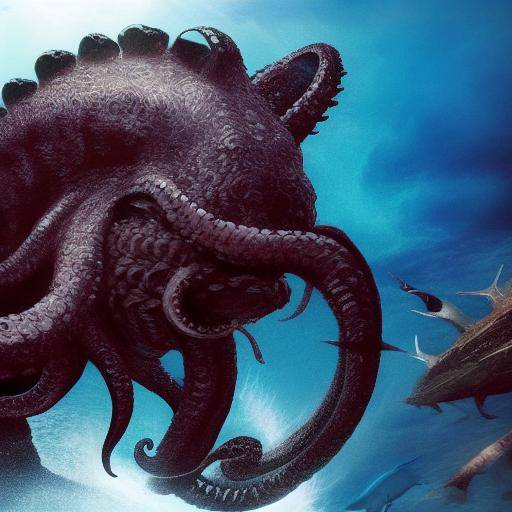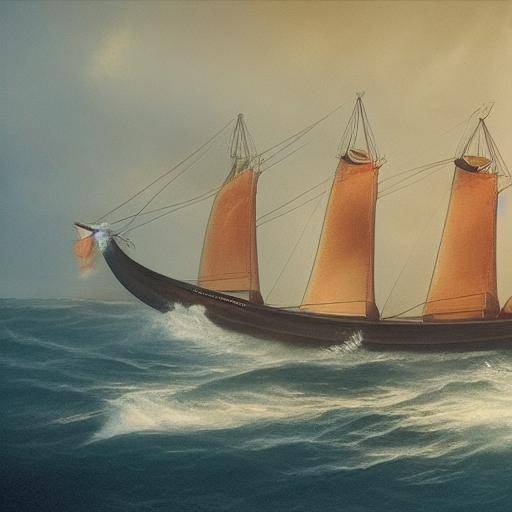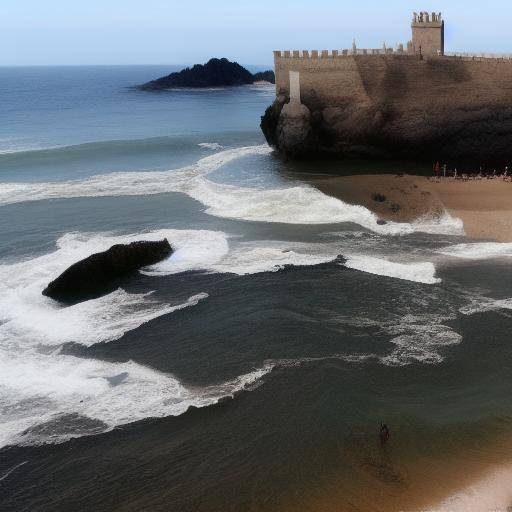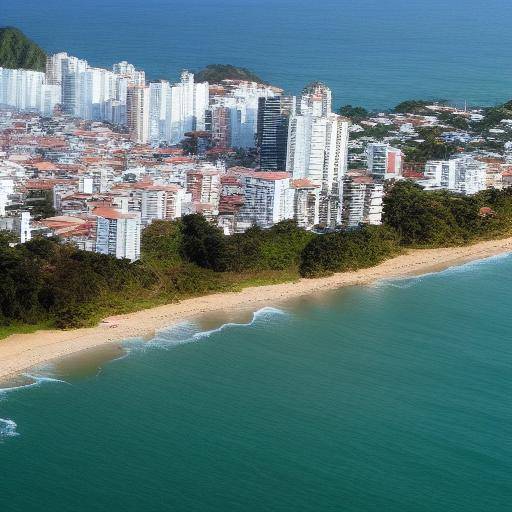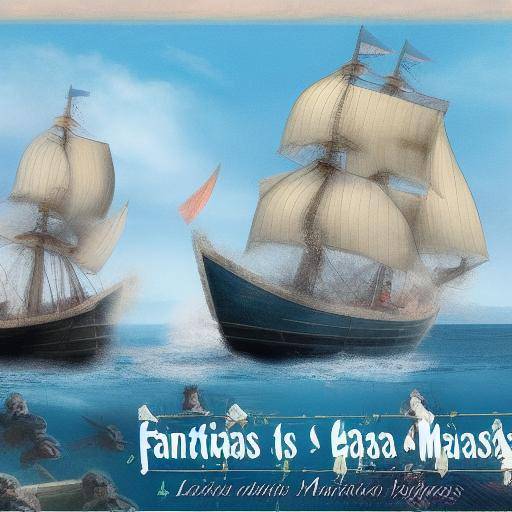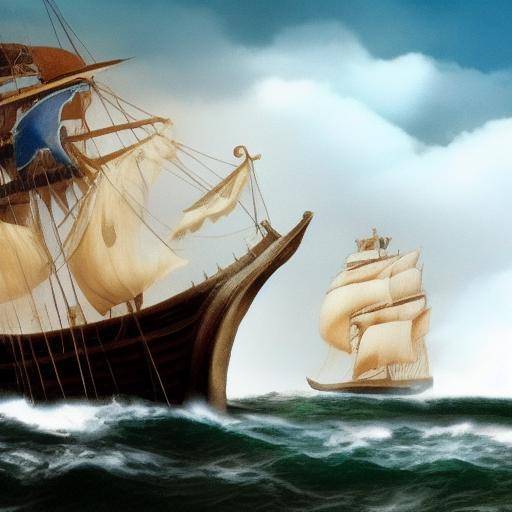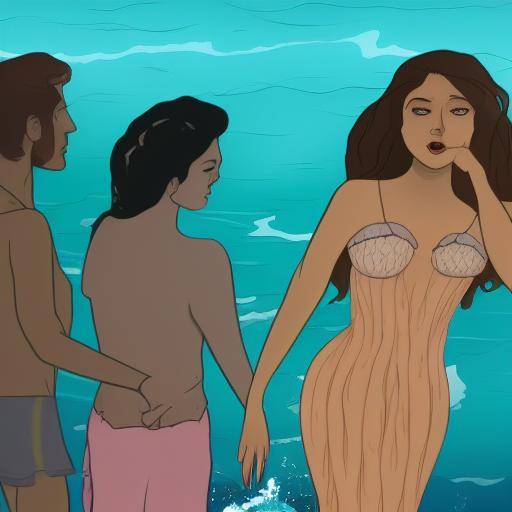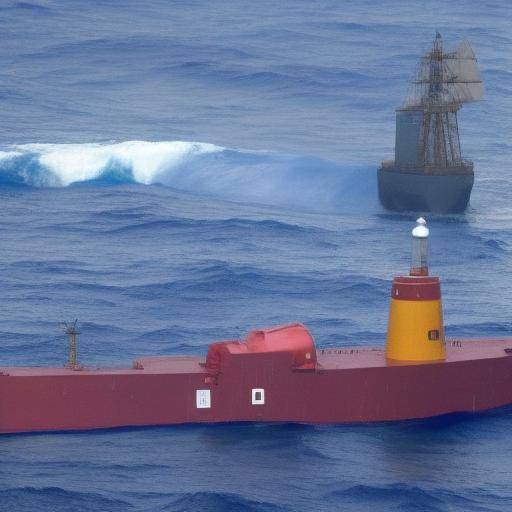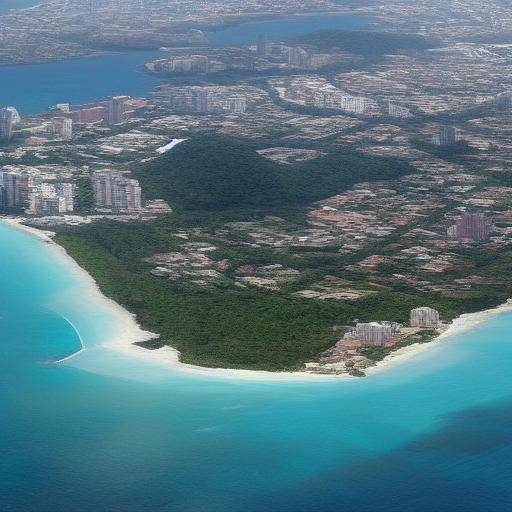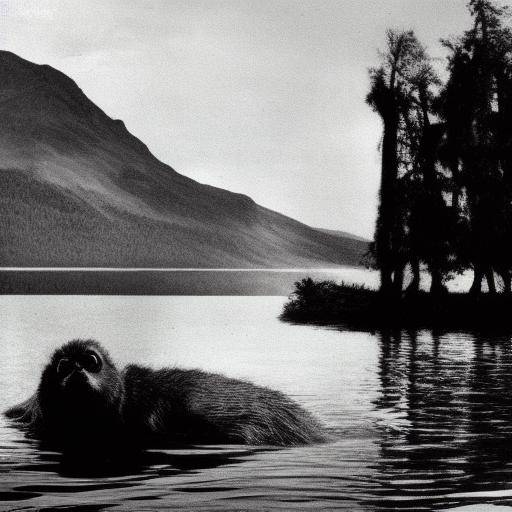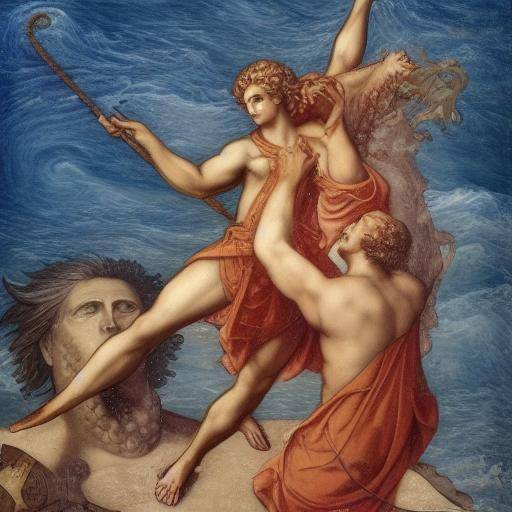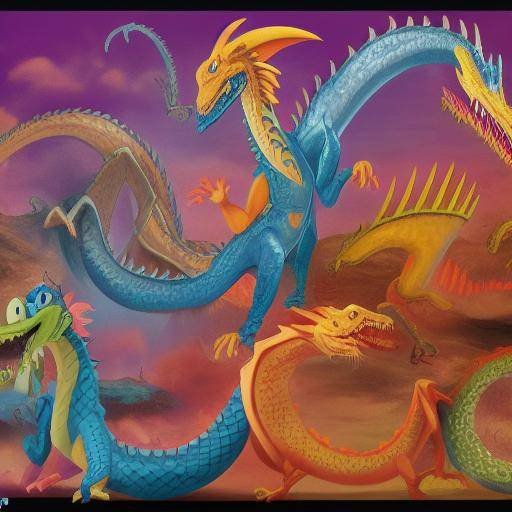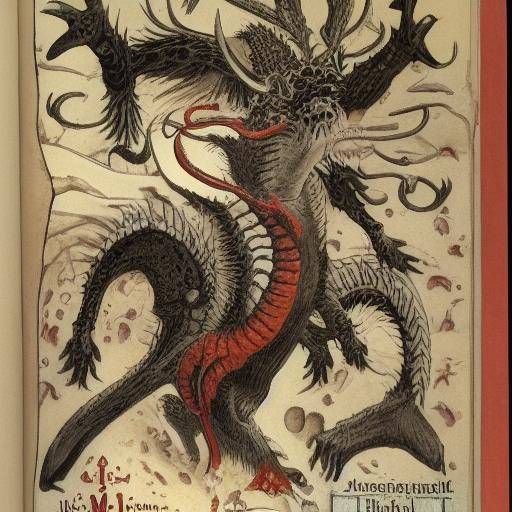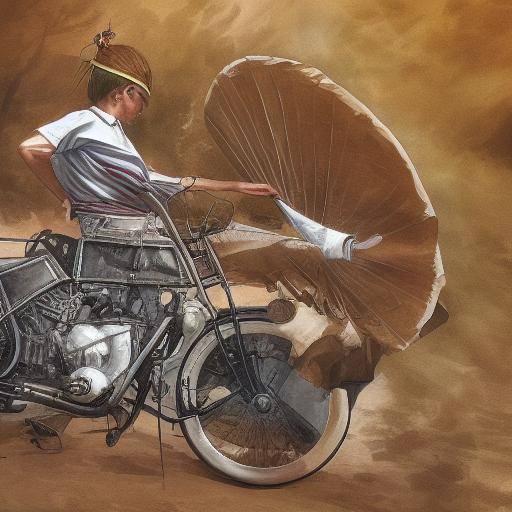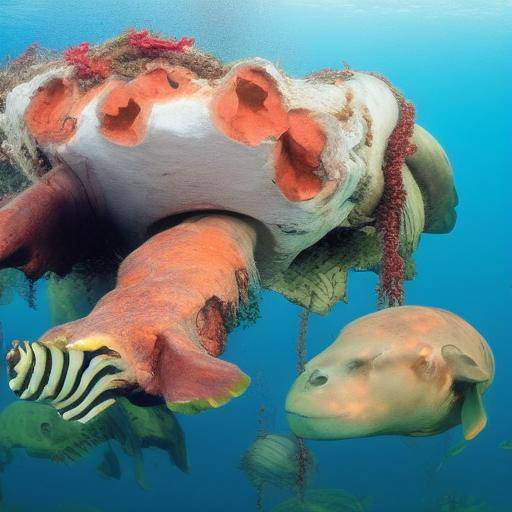
The vast ocean has been a source of inspiration for countless legends and myths that have endured over the centuries. From mythical creatures that spring up the waters to accounts of marine beings with extraordinary powers, marine legends have exercised an eternal fascination in humanity. In this article, we will explore the mythical creatures of the ocean, the legends of marine beings and the mysterious beings that inhabit the aquatic depths. Join us on this journey through the haunted waters of the ocean and discover the magic and mystery that lie beneath its surface.
Introduction
The charm of marine mythical creatures
The ocean, with its immensity and mystery, has been the perfect stage for the emergence and proliferation of legends about extraordinary beings and supernatural manifestations. Since time immemorial, cultures around the world have nurtured their oral traditions with tales of marine beings that awaken the imagination and keep alive the belief in the inexplicable. The attractiveness of these mythical creatures of the ocean has transcended generations, captivating sailors, sailors and mythology enthusiasts throughout history.
History and Background
Origins of the Marine Legends
Marine legends have their roots in the ancient civilizations that found their sustenance and fear at sea. Cultures such as Greek, Nordic, Chinese and Polynesia gave the ocean a wide range of mythical beings, each with distinctive features that reflected the perceptions and beliefs of their respective societies. These legends, transmitted from generation to generation, were enriched with stories of mermaids, krakens, leviatans and other beings whose exploits and nature challenged human understanding.
Evolution of the mythical creatures of the ocean
Over time, marine legends have adapted to changing cultural perspectives and conceptions. As exploration and navigation expanded knowledge about oceans, new mythical creatures emerged from tales of high seas sighting and strange natural formations. These stories further expanded the repertoire of fantastic beings that fascinate humanity until today.
Relevant Hitos and Figures in Marine Mythology
Throughout history, prominent figures have contributed to the amplification and perpetuation of marine legends. Writers, explorers and artists have translated these creatures into literary works, maps and illustrations, consolidating their place in the collective imagination. The work "The Odyssey" of Homer or the artistic representations of Kraken in the nautical charts are examples of how these marine legends have transcended generations and continue to inspire admiration and astonishment today.
Analysis in Deep
Fortresses of Marine Legends
Marine legends have a unique ability to awaken emotions and stimulate creativity. Its influence on literature, cinema, music and other forms of artistic expression is undeniable, enriching the cultural acquis of global society. The attraction exercised by these mythical creatures has also generated an important tourist impulse in destinations related to their legends, encouraging the interest in the conservation of marine ecosystems.
Challenges in the Interpretation of Mystic Creatures
Despite its charm and appeal, marine legends have also been the subject of skepticism and questioning. The lack of scientific evidence has led to debates about the veracity of accounts and the actual existence of these mythical creatures. The difficulty in distinguishing between reality and fiction has generated controversy, fueling skepticism and unbelief around marine legends.
Current Trends in Marine Mythology
In the contemporary era, marine legends have found a renewed interest, in part thanks to the global dissemination through the internet and the media. The emergence of online communities dedicated to the exploration of myths and legends has led to a continuous exchange of stories, anecdotal evidences and theories about the existence of mythical beings in the ocean. This digital interconnection has generated a resurgence of interest for marine mythical creatures and the perpetuation of their mystery in the modern era.
Comprehensive review
Applications of Marine Legends in Global Culture
Marine legends continue to exert a significant influence on popular culture, manifesting themselves in films, books, television series and works of art. The echo of these stories extends through generations, transcending cultural and linguistic barriers to connect people from diverse backgrounds in their fascination with the ocean and its mysteries.
Views of Experts on the mythical creatures of the ocean
Experts on mythology and folklore have observed the lasting impact of marine legends on the human psyche. Many argue that, beyond their scientific veracity, these stories play a crucial role in building the collective imagination and transmitting knowledge about the marine environment. The deep presence of these legends in human cultural consciousness continues to captivate scholars and enthusiasts of mythology.
Futures of Marine Legends
The future of marine legends is driven by the perpetuation and reinterpretation of these stories as technology and marine exploration progress. New scientific revelations could shed light on the possible real basis of some of these mythical creatures, generating a debate around their influence on the contemporary perception of the ocean and its fauna.
Comparative analysis
Mythical Ocean vs. Royal Seabed
While mythical creatures of the ocean are the product of human imagination and oral tradition, it is worth highlighting the wealth and diversity of the real species that inhabit the oceans. From the majestic white shark to the enigmatic jellyfish, authentic marine life continues to surprise scientists and nature enthusiasts with its variety and complexity.
Parallel between Marine Legends and Ocean Reality
Despite its fictitious nature, many marine legends reflect recognisable aspects of the behavior and anatomy of the real marine creatures. Human imagination, in its effort to understand the unknown, has woven stories that, although fantastic, share surprising similarities with the biology and behavior of the real inhabitants of the ocean.
Practical Tips and Accessible Recommendations
Exploring the World of Marine Legends
If you want to enter the fascinating universe of mythical creatures of the ocean, we recommend you to explore mythology books, ocean documentaries and museums specializing in the marine theme. These sources of information will provide a deeper view of marine legends and their impact on world culture.
Separating the Fantasy of Reality
It is important to recognize that, while marine legends may be captivating, they are rooted in folklore and collective imagination, rather than in scientific evidence. Maintaining a balance between fascination with these stories and current scientific knowledge ensures a balanced appreciation of the mystery and wonder of the ocean.
Industry Perspectives and Expert Reviews
Impact of the LegendsMarins on Tourism
The mystery aura surrounding the mythical creatures of the ocean has led to an increase in tourism in areas attributed to tales of sightings of fantastic beings. Destinations such as the coasts of Scotland, associated with the legend of the lake Ness monster, have experienced a constant flow of visitors interested in exploring the stories and myths that shape the identity of these regions.
Reflections on Marine Legends
Experts on mythology and folklore point out that marine legends are a reflection of the complex relationship between the human being and the ocean. These stories not only entertain, but also convey lessons on the importance of respecting and preserving marine ecosystems. In considering their influence in society, it is essential to value and protect the cultural wealth they contain.
Case Studies and Practical Applications
Cultural Impact of Marine Legends in Literature
The work "Twenty thousand leagues of underwater travel", by Julio Verne, is an outstanding example of how marine legends have influenced literature, generating a great impact on the public perception of marine exploration and stimulating the imagination of several generations.
Preservation of Cultural Heritage Related to Marine Legends
Museums and cultural centres specializing in marine mythology play a vital role in the preservation and dissemination of these legends, promoting a deeper understanding of their historical and cultural significance. These spaces foster dialogue and reflection on the role of marine legends in the configuration of cultural identities worldwide.
Future Trends and Predictions
Innovations in the Study of Marine Mythology
The advance of underwater technology and oceanographic research offers new opportunities to explore unfamiliar areas of oceans, potentially revealing unsuspecting aspects of marine fauna. This exploration could shed light on the possible real basis of some of these marine legends, raising questions about their influence on contemporary ocean consciousness and its inhabitants.
Reflections on the Future of the mythical creatures of the Ocean
The future of marine legends is inextricably linked to the evolution of the relationship between human beings and the ocean. As environmental awareness and scientific knowledge continue to expand, new interpretations and approaches are likely to emerge to understand and appreciate the role of mythical creatures of the ocean in the cultural and environmental legacy of humanity.
Conclusions and FAQs
Conclusions
In short, the mythical creatures of the ocean and the legends of marine beings have exerted a lasting influence on human imagination, transcending geographical and temporal borders. Through the lenses of mythology, art and culture, they continue to dazzle and astonish generations of avid people to explore the unknown and preserve the wealth of marine traditions.
Frequently asked questions
1. What is the difference between a mythical creature from the ocean and a real marine species?
The mythical creatures of the ocean are fantastic beings in the field of mythology and folklore, while the real marine species are living organisms documented by science.
2. How do marine legends influence the conservation of marine ecosystems?
Marine legends can generate interest and awareness of the importance of preserving the oceans and their biodiversity, contributing to conservation and sustainability initiatives.
3. Are there scientific evidence of the existence of mythical creatures in the ocean?
To date, there is no scientific evidence to support the actual existence of mythical creatures of the ocean. These figures are the product of folklore and human imagination.
4. What is the impact of marine legends on contemporary popular culture?
Marine legends continue to influence literature, cinema, music and other forms of artistic expression, enriching global culture and stimulating creativity.
5. What role do marine legends play in building cultural identities?
Marine legends are part of the cultural heritage of various societies, contributing to the construction of narratives and identities related to the relationship between human beings and the ocean.
6. What is the current relevance of the mythical creatures of the ocean in the era of technology and scientific exploration?
The interest for the mythical creatures of the ocean persists, coexisting with technological and scientific developments that continue to broaden our understanding of the ocean and its mysteries.
In short, the mythical creatures of the ocean and the legends of marine beings have left a profound mark on the history and culture of humanity. Despite its roots in imagination and folklore, its influence persists in art, literature, tourism and environmental awareness. As ocean exploration and knowledge progress, these mythical creatures continue to find a place in the heart and mind of those who seek to be amazed by the mysteries of the vast and fascinating marine world.

